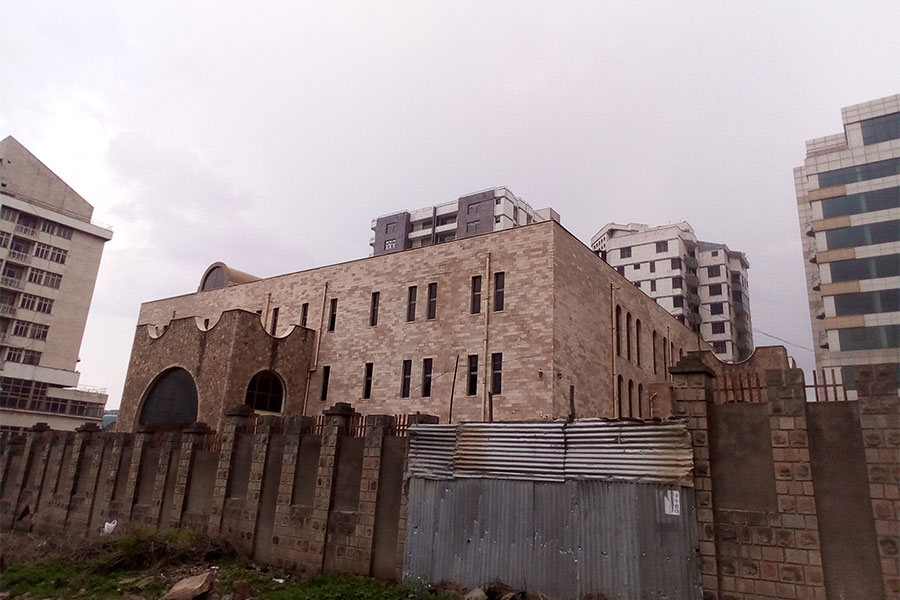
Radar | Mar 12,2022
Thousands of employees of a sputtering state-owned sugar estate have received a settlement for months of unpaid wages following a ruling from a labour case division of the Afar Regional State's High Court. The management of Tendaho Sugar Factory has to pay 94 million Br for 6,700 employees who were not paid for nine months and a three-month severance payment.
The workers had taken the case to court four months ago, claiming unlawful dismissals.
The dispute began two years ago after authorities in the federal government instructed the factory's management to trim its workforce of 15,000, of which less than one third were permanent employees. However, Hassen Dawud, the factory's general manager, informed executives of the Ethiopian Sugar Corporation in August 2020 that transfers and laying off of employees could not be conducted on schedule. The factory was unable to pay salaries for four months.
A labour union established by close to 15,000 employees working for the factory had urged the management to pay the wages owed. Leader of the Union, Haji Nora, had urged the management that employees and their families were in severe financial distress. The Union threatened to take legal action if its demands were not met.
Labour leaders negotiated with the management; the latter agreed to settle the unpaid wages within 10 days. Hassen requested Weyo Roba, chief executive officer (CEO) of the Corporation, for an additional fund as the budget allocated to the factory was insufficient to cover payroll.
The Confederation of Ethiopian Labour Unions (CELU), a national organisation representing labour federations, has monitored the dispute closely since last August. Kassahun Follo is the president of the Confederation who labour leaders in Tandaho update.
“We had tried to talk to both parties before they went to court,” Kassahun told Fortune.
The efforts at reconciliation proved futile as the labour union filed a civil suit before the Afar Regional State High Court earlier this year.
Judges ruled in favour of the employees, spurring the factory's management to appeal to the Federal Supreme Court. However, the management chose to withdraw its appeal shortly afterwards and agreed to pay the compensation, according to Adem Aman, a representative of the Factory's management.
"The management decided to pay instead of incurring additional expenses challenging the ruling," he told Fortune.
Azize Nura, 31, is among the employees who received a settlement. He had worked as security personnel for the factory since 2015, earning a monthly gross salary of 2,500 Br. He was abruptly fired last November.
A father of eight, Azize has been making do as a daily labourer in the months since his dismissal. Two weeks ago, he received 23,000 Br as part of the settlement awarded by the court. He finds little comfort in accepting money that equals nine-month of his salary.
"It doesn't mean anything without a decent permanent job," said Azize.
The dispute with employees is not the only source of turbulence at the troubled factory.
Construction on the sugar estate in Asayita, 660Km northeast of Addis Abeba, began in 2005. Overseas Infrastructure Alliance, an Indian contractor, was hired for the job for 230 million dollars. It included the building of nearly 9,000 residential units and 429 buildings; the work was delayed by four years when it was finished in 2016 and suffered a cost run.
Tendaho Sugar Factory can crush 4.7 million tonnes of sugarcane and produce 300,000tn of sugar a year. It was also expected to generate 60mw of electricity annually from 27 million litres of ethanol, a byproduct of the sugar manufacturing process. It began trial production in 2017, pumping out a mere 310qtl of sugar before ceasing operations in 2019. The factory has yet to meet a fraction of its production capacity and has been covering a 27 million Br monthly payroll for most workers who remained idle.
Although officials had pledged to resume operations within two years, the factory remains out of production.
The Corporation overseeing the operations of sugar factories since 2010 began transferring Tendaho employees to other estates under its purview, including the Omo Kuraz sugar estates in the south. It also began laying off workers starting in early 2021. More than 6,700 workers lost their jobs without following legal procedures, according to Musa Hussein, who had worked at the Tendaho Sugar Factory for eight years, including as head of the human resources division.
Tendaho has developed a sugarcane plantation on a little over half of the 35,000hct plot using the dam, which features a 42Km main canal. The dam on the Awash River has a storage capacity of 1.86 billion cubic metres, erected at the cost of 3.5 billion Br. It has the capacity to irrigate 60,000hct. The factory's management has leased out 27,000hct of the plot 76Km away from the processing plant to commercial wheat farmers. Another 7,000hct was transferred to residents.
Musa disclosed the commercial farmers have only been able to cultivate 7,000hct thus far.
"Shortages of agricultural inputs mean farmers cannot cultivate more land," said Musa, who is now a director of Livestock, Agriculture & Natural Resources Development Bureau under the Afar Regional State.
The farmland and the canal are now under the supervision of the Afar Regional State's Administration, though the factory remains under the purview of the Corporation.
The federal government recently announced it is overhauling the sugar industry by replacing the Corporation with the newly-formed Ethiopian Sugar Industry Group. A month ago, the Council of Ministers approved the formation of the Group with 115 billion Br capital. The oldest sugar estates – Wonji, Metehara, and Fincha – and the newly-built Kessem and Tana Beles plants are founding shareholders of the Group, which is also mandated to monitor progress with eight state-owned sugar plants under construction.
Federal officials hope the Group will facilitate lagging efforts to privatise sugar plants.
PUBLISHED ON
May 14,2022 [ VOL
23 , NO
1150]

Radar | Mar 12,2022

Radar | Nov 28,2020

Fortune News | Mar 12,2020

Featured | Sep 08,2019

Radar | Nov 26,2022

Radar | Aug 10,2019

Fortune News | Oct 21,2023

Radar | Jul 18,2020

Radar | May 07,2022

Radar | Jan 11,2020

Dec 22 , 2024 . By TIZITA SHEWAFERAW
Charged with transforming colossal state-owned enterprises into modern and competitiv...

Aug 18 , 2024 . By AKSAH ITALO
Although predictable Yonas Zerihun's job in the ride-hailing service is not immune to...

Jul 28 , 2024 . By TIZITA SHEWAFERAW
Unhabitual, perhaps too many, Samuel Gebreyohannes, 38, used to occasionally enjoy a couple of beers at breakfast. However, he recently swit...

Jul 13 , 2024 . By AKSAH ITALO
Investors who rely on tractors, trucks, and field vehicles for commuting, transporting commodities, and f...

Oct 25 , 2025
The regulatory machinery is on overdrive. In only two years, no fewer than 35 new pro...

Oct 18 , 2025
The political establishment, notably the ruling party and its top brass, has become p...

Oct 11 , 2025
Ladislas Farago, a roving Associated Press (AP) correspondent, arrived in Ethiopia in...

Oct 4 , 2025
Eyob Tekalegn (PhD) had been in the Governor's chair for only weeks when, on Septembe...